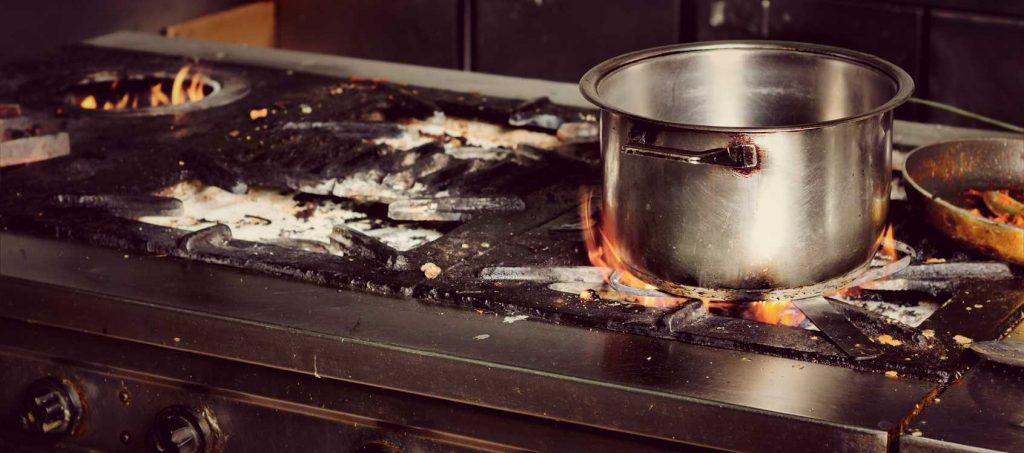NJ Boroughs Step Up Restaurant Grease Trap Cleaning
The New Jersey Borough of Metuchen has a “greasy” problem on its hands and hopes to prevent what Councilwoman Allison Inserro has called a “yucky” situation.
At the next council meeting, borough officials are expected to introduce an ordinance on how restaurant businesses maintain their grease traps.
“This is an issue we are looking at carefully,” said Mayor Peter Cammarano at a council meeting.
Metuchen Borough Public Works Director Fred Hall said in this quarter alone for 2017, local officials have responded to 36 different call outs from residents or business owners for sewer problems.
Thirteen of the calls pertained to the downtown area — Main Street, New Street portion of Lake Avenue between New Street and Middlesex Avenue.
“That’s like 35 percent of the calls,” said Hall. “And with these calls that we’ve had, it doesn’t mean that you have one call in the day and that’s it. If you have a problem with grease on Main Street, it’s an all day job.”
Hall said the grease solidifies in the pipes and becomes a problem.
“If we get called out for grease, we’ll snake it to break the blockage, but the grease keeps moving,” he said. “If all downtown is filled up, you are just going back and forth for hours trying to get this to clear.”
Hall said he has seen manholes on New Street and Center Street surcharging – pushing the manhole lids up where grease would move its way across the road.
“It’s unsightly plus other things are with it,” he said. “In the past, I have gone in restaurants where I observed grease traps not being maintained. We’ve seen some of them, we couldn’t even open. Some were screwed to the floor with rusted bolts. Some of the businesses couldn’t produce any certification or receipt that anything was being done.”
Hall said many of those establishments have closed down, but the problem still exists.
“I know we are putting a lot of money into the Jersey Avenue pump station and I hate to see all new variable pumps put in there and a whole new system become damaged because we keep allowing the grease to come into the wet wells,” he said.
Hall said restaurants are required to have grease traps.
“It’s a container that’s usually in the basement area or outside,” he said. “It has a pipe coming into it from the drains/sinks in the restaurant.”
The grease trap separates the water from the debris solids to keep grease from pumping into the sewer line.
“Once it’s into our system it solidifies and when it hits cold water it expands inside the sewer line causing blockages,” said Hall. “Then people that have nothing to do with this are incurring the problem for having their basements flooded with grease.”
Hall said businesses are supposed to have grease trap cleaning whether it’s biweekly or monthly by a certified company.
“It really depends on how much they are producing inside these grease traps,” he said. “And it’s really for their own protection and their own business environment.”
Hall said the restaurant businesses then are supposed to have certified documentation of the cleanings that can be produced when asked for by town officials.
“My fear is that with all the construction going on in the downtown — events and 200 some apartments on New Street — we’re going to have backups with grease if we are not going to do something about this,” he said.
With the proposed ordinance, Hall, the health inspector and/or plumbing inspector would monitor grease trap maintenance.
Councilwoman Allison Inserro said what Metuchen and a number of municipalities are lacking is an ordinance to put enforcement in place.
“I researched what other towns and cities are doing,” she said adding that she presented the proposed ordinance to Borough Attorney Dennis Murphy and Hall. “We adapted it slightly to fit best practices.”
Murphy said according to the proposed ordinance there would be at least an annual inspection provided for food handler licenses to produce paperwork of the maintenance log of the grease trap required under the ordinance.
A penalty provision kicks in only if there are violations. An inspection fee would be triggered if a violation occurs and for any re-inspection fees to ensure compliance, said Murphy.
Business Administrator Jennifer Maier noted that the proposed ordinance allows for officials to require a grease trap be brought up to current code in terms of size and design.
An issue with excessive grease in the New Jersey Borough of Roselle Park’s sewer lines over the last few years has resulted in their governing body proposing a law that will require businesses to have and maintain grease traps.
Ordinance 2485 will minimize grease from restaurants, eateries, and food service facilities which – in turn – will prevent blockage and plugging of pipelines and lessen difficulties to water treatment plants.
A lack of grease traps – according to Mayor Carl Hokanson at the March 2nd municipal meeting – has lead to the borough spending between $10,000 and $20,000 to clean lines that were clogged with grease over time. It has gotten so bad that the Department of Public Works (DPW) currently checks the lines once very three to four days. In speaking with the Board Of Health, the municipality found out that no grease trap ordinance existed to monitor and regulated discharge.
“Right now we’re having a major problem and we’ve had one or two businesses actually get flooded out because of the grease,” said Mayor Hokanson about how serious the issue has become.
To prevent your grease interceptor from getting clogged with food solids, consider installing The Drain Strainer so you won’t have to pump your grease trap as often.

